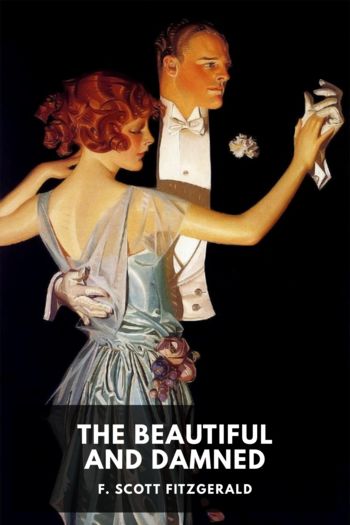The Devil’s Dictionary by Ambrose Bierce (children's ebooks free online txt) 📕

- Author: Ambrose Bierce
Book online «The Devil’s Dictionary by Ambrose Bierce (children's ebooks free online txt) 📕». Author Ambrose Bierce
An obsolescent appliance for reminding assassins that they too are mortal. It is put about the neck and remains in place one’s whole life long. It has been largely superseded by a more complex electrical device worn upon another part of the person; and this is rapidly giving place to an apparatus known as the preachment.
RostrumIn Latin, the beak of a bird or the prow of a ship. In America, a place from which a candidate for office energetically expounds the wisdom, virtue and power of the rabble.
RoundheadA member of the Parliamentarian party in the English civil war—so called from his habit of wearing his hair short, whereas his enemy, the Cavalier, wore his long. There were other points of difference between them, but the fashion in hair was the fundamental cause of quarrel. The Cavaliers were royalists because the king, an indolent fellow, found it more convenient to let his hair grow than to wash his neck. This the Roundheads, who were mostly barbers and soap-boilers, deemed an injury to trade, and the royal neck was therefore the object of their particular indignation. Descendants of the belligerents now wear their hair all alike, but the fires of animosity enkindled in that ancient strife smoulder to this day beneath the snows of British civility.
RubbishWorthless matter, such as the religions, philosophies, literatures, arts and sciences of the tribes infesting the regions lying due south from Boreaplas.
RuinTo destroy. Specifically, to destroy a maid’s belief in the virtue of maids.
RumGenerically, fiery liquors that produce madness in total abstainers.
RumorA favorite weapon of the assassins of character.
Sharp, irresistible by mail or shield,
By guard unparried as by flight unstayed,
O serviceable Rumor, let me wield
Against my enemy no other blade.
His be the terror of a foe unseen,
His the inutile hand upon the hilt,
And mine the deadly tongue, long, slender, keen,
Hinting a rumor of some ancient guilt.
So shall I slay the wretch without a blow,
Spare me to celebrate his overthrow,
And nurse my valor for another foe.
A person with a Caucasian body and a Mongolian soul. A Tartar Emetic.
S SabbathA weekly festival having its origin in the fact that God made the world in six days and was arrested on the seventh. Among the Jews observance of the day was enforced by a Commandment of which this is the Christian version: “Remember the seventh day to make thy neighbor keep it wholly.” To the Creator it seemed fit and expedient that the Sabbath should be the last day of the week, but the Early Fathers of the Church held other views. So great is the sanctity of the day that even where the Lord holds a doubtful and precarious jurisdiction over those who go down to (and down into) the sea it is reverently recognized, as is manifest in the following deep-water version of the Fourth Commandment:
Six days shalt thou labor and do all thou art able,
And on the seventh holystone the deck and scrape the cable.
Decks are no longer holystoned, but the cable still supplies the captain with opportunity to attest a pious respect for the divine ordinance.
SacerdotalistOne who holds the belief that a clergyman is a priest. Denial of this momentous doctrine is the hardest challenge that is now flung into the teeth of the Episcopalian church by the Neo-Dictionarians.
SacramentA solemn religious ceremony to which several degrees of authority and significance are attached. Rome has seven sacraments, but the Protestant churches, being less prosperous, feel that they can afford only two, and these of inferior sanctity. Some of the smaller sects have no sacraments at all—for which mean economy they will indubitably be damned.
SacredDedicated to some religious purpose; having a divine character; inspiring solemn thoughts or emotions; as, the Dalai Lama of Tibet; the Moogum of M’bwango; the temple of Apes in Ceylon; the Cow in India; the Crocodile, the Cat and the Onion of ancient Egypt; the Mufti of Moosh; the hair of the dog that bit Noah, etc.
All things are either sacred or profane.
The former to ecclesiasts bring gain;
The latter to the devil appertain.
A mechanical device acting automatically to prevent the fall of an elevator, or cage, in case of an accident to the hoisting apparatus.
Once I seen a human ruin
In an elevator-well,
And his members was bestrewin’
All the place where he had fell.
And I says, apostrophisin’
That uncommon woeful wreck:
“Your position’s so surprisin’
That I tremble for your neck!”
Then that ruin, smilin’ sadly
And impressive, up and spoke:
“Well, I wouldn’t tremble badly,
For it’s been a fortnight broke.”
Then, for further comprehension
Of his attitude, he begs
I will focus my attention
On his various arms and legs—
How they all are contumacious;
Where they each, respective, lie;
How one trotter proves ungracious,
T’other one an alibi.
These particulars is mentioned
For to show his dismal state,
Which I wasn’t first intentioned
To specifical relate.
None is worser to be dreaded
That I ever have heard tell
Than the gent’s who there was spreaded
In that elevator-well.
Now this tale is allegoric—
It is figurative all,
For the well is metaphoric
And the feller didn’t fall.
I opine it isn’t moral
For a writer-man to cheat,
And despise to wear a laurel
As was gotten by deceit.
For ’tis Politics intended
By





Comments (0)